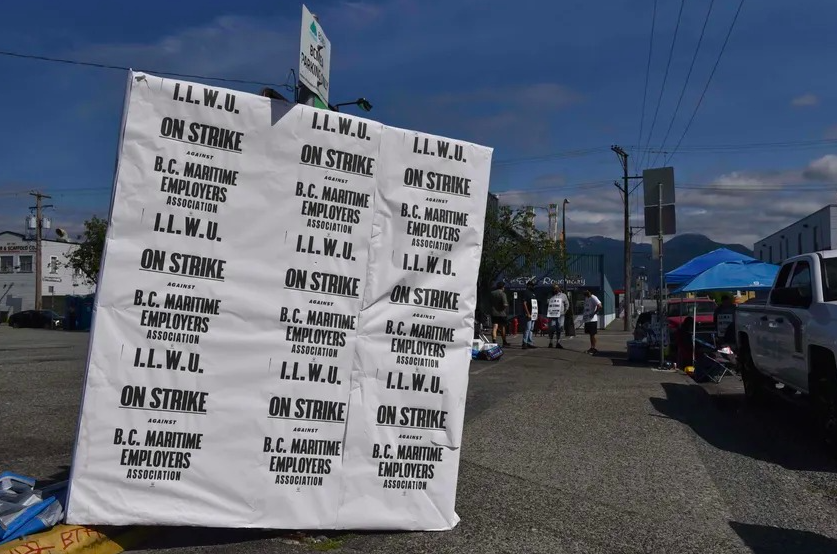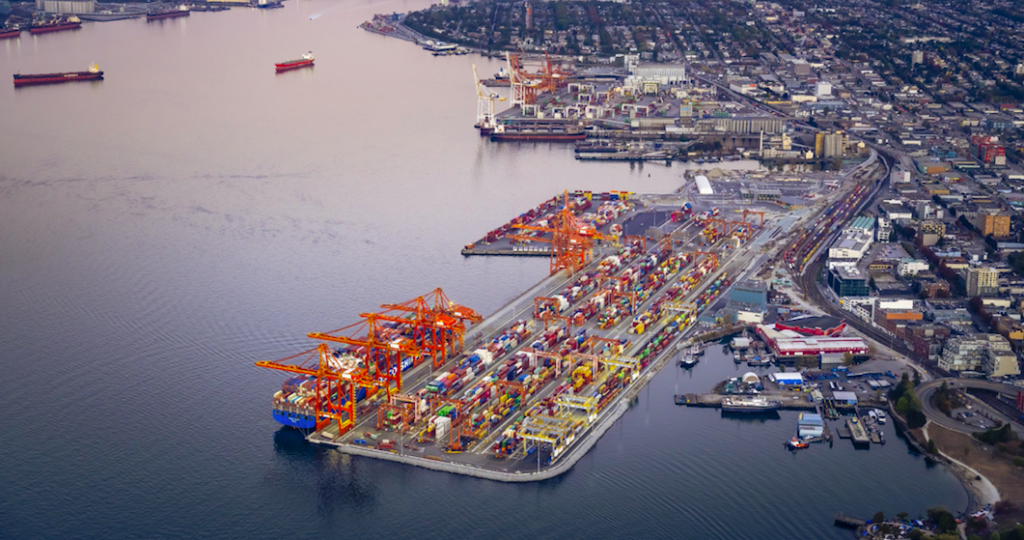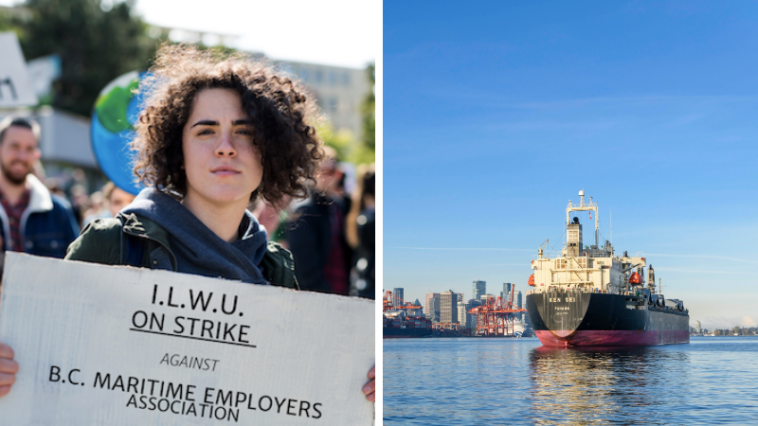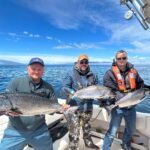There may be an end in sight for the striking port workers in Prince Rupert and Vancouver.
As of Wednesday, the International Longshore and Warehouse Union (IWLU) announced it has revoked its latest 72-hour strike notice–for many, a hopeful signal that a fair agreement may soon be found.
The port strike, which initially began on July 1, saw more than 7,400 workers walk off the job after lengthy negotiations guided by a federal facilitator. The dispute has had a significant impact on the Port of Vancouver and the Port of Prince Rupert, the largest and third largest ports in Canada, respectively.
“We just want a fair contract that basically protects us from automation, and so we don’t get subcontracted jobs coming into our port. And we want a wage increase that kind of keeps up with inflation.”
Sandy Dhara, spokesperson for the strikers

The economic ripple effects have extended far beyond Canada’s borders, affecting global trade and supply chains that relied on the ports’ operation.
The news comes on the tail of the ILWU’s announcement on Tuesday that it would reject an earlier tentative deal and resume strike activity at BC’s largest ports, setting off concerns about prolonged disruptions in the region.
Community Rallies for Rupert Strikers
Meanwhile, workers at the Prince Rupert Local 505 have been receiving plenty of community support.
“We’ve had a lot of generous donations from various community members,” said Sandy Dhara, spokesperson for the strikers. Workers from local unions, like ferry labourers and nurses, have shown solidarity through donations to Rupert strikers. Even businesses like Subway have offered local discounts to picket-line workers.
“We just want a fair contract that basically protects us from automation, and so we don’t get subcontracted jobs coming into our port,” Dhara told The Northern View. “And we want a wage increase that kind of keeps up with inflation.”
End in Sight?

“The past 24 hours have demonstrated that this continues to be a fluid and unpredictable situation. We will communicate as appropriate with key stakeholders as we receive clarification.”
BCMEA Spokesperson
With Wednesday’s announcement that the ILWU is calling off the strike notice, the federal government says it expects port labourers to be back at work soon.
However, the BC Maritime Employers Association (BCMEA) is careful not to call the strike over just yet.
“The past 24 hours have demonstrated that this continues to be a fluid and unpredictable situation. We will communicate as appropriate with key stakeholders as we receive clarification,” said a BCMEA spokesperson.







